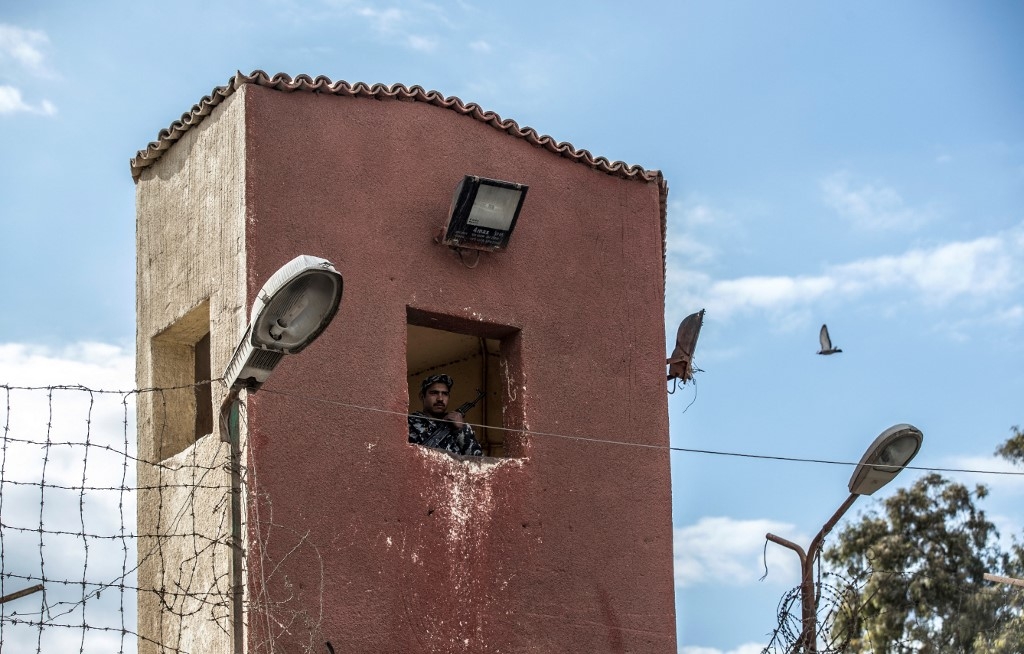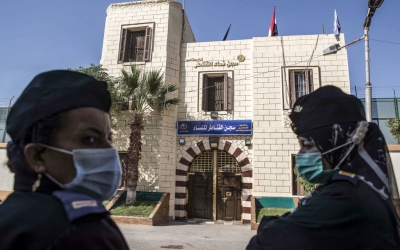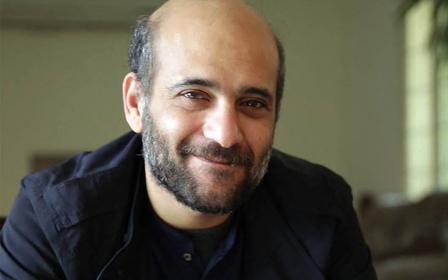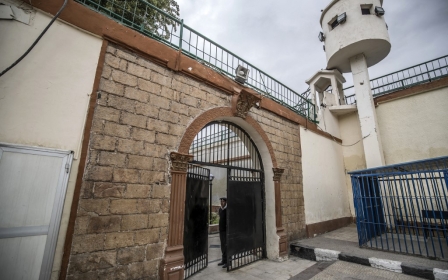Torture and abuse in Egypt's prisons fuel Islamic State recruitment, rights group says

Torture and abuse inside Egypt's prison system are helping fuel the recruitment of inmates to the Islamic State (IS) group, a US-based rights group has said.
Human Rights First said in a report published on Thursday that recruitment by IS members went unchecked by Egyptian authorities, with IS exploiting inmates' pain and grievances towards the Egyptian government.
The Washington-based rights group drew on testimonies from prisoners released between 2019 and 2021 and found that all of the inmates it interviewed had witnessed someone who was recruited by the militant group.
"The authorities are creating ticking time bombs by allowing this," one prisoner told Human Rights First.
"I know of three guys who when they arrived in prison weren't radical. They joined ISIS in prison. When they were released, two went to fight for ISIS in Sinai and one was killed fighting in Syria," the prisoner added, using another name for the IS group.
New MEE newsletter: Jerusalem Dispatch
Sign up to get the latest insights and analysis on Israel-Palestine, alongside Turkey Unpacked and other MEE newsletters
A decade-old insurgency in North Sinai escalated in 2013 when the Egyptian military overthrew the country's first democratically elected President Mohamed Morsi.
Capitalising on the political turmoil that has ensued since, armed groups have stepped up attacks on troops and police in the Sinai Peninsula and have also used the territory as a launchpad to strike elsewhere in Egypt.
'US policy is enabling ISIS to grow inside Egypt's prison system'
- Brian Dooley, Human Rights First
According to Human Rights Watch, at least 3,076 alleged militants have been killed in the ongoing security campaign, but the region has remained largely cut off to journalists, making the compilation of independent casualty figures almost impossible.
Since seizing power, President Abdel Fattah el-Sisi has embarked on an unrelenting crackdown on dissent, targeting activists, journalists, and doctors who criticised the government's handling of the Covid-19 crisis and even TikTok influencers.
Human rights groups estimate that more than 60,000 people have been jailed, with death sentences having risen three-fold.
Prisoners told Human Rights First that one of the main motivations for joining IS was to seek revenge against the Egyptian authorities. Some also joined because of the protection members of the militant group received while in the prison system.
Youssef*, a former inmate released earlier this year, said that IS members were free to mix with young, disenfranchised prisoners who are regularly tortured.
"What is a catastrophe is that authorities have not separated the prisoners connected to real cases of terrorism from those who simply oppose the regime on political grounds," he said.
"I have never seen the prison authorities interfere to prevent this from happening," he added.
US support to Egypt
Human Rights First said one of the causes for the continuing abuses was the unfettered support, both politically and through military aid, the United States gives Egypt.
"The Biden administration has said it is 'putting human rights at the center of US foreign policy,' but in Egypt, it seems to be ignoring a dictatorship's human rights abuses that manufacture terrorists in their prisons," Brian Dooley, senior advisor to Human Rights First and author of the report, said in a statement.
"Torture is rife in Egypt’s jails, and this abuse helps in the radicalization of angry prisoners looking for revenge against the authorities.
"By plying the Egyptian government with arms and political support, US policy is enabling ISIS to grow inside Egypt’s prison system. When the Biden administration takes on extremists, it will to some degree be taking on its own creation."
Washington gives more than $1bn in military aid to Egypt every year. Congress has imposed human rights conditions on $300m of that aid. However, the previous administrations of Barack Obama and Donald Trump issued national security waivers to override the conditions.
The State Department is set to decide whether to halt the $300m in assistance or to issue another national security waiver.
Department Spokesman Ned Price said in a news briefing with reporters this week that human rights are considered when making the decision to continue aid, but would not comment further on funding.
Many rights groups have chided the Biden administration for not taking concrete actions against Cairo's human rights abuses, saying that the president is continuing a "blank check" policy that Biden had promised to end.
"The easiest thing - the lowest hanging fruit - they can do is suspend $300 million because of Egypt's inability to meet the conditions set by Congress to continue US aid," Raed Jarrar, advocacy director at Democracy for the Arab World Now (DAWN), previously told Middle East Eye.
Middle East Eye delivers independent and unrivalled coverage and analysis of the Middle East, North Africa and beyond. To learn more about republishing this content and the associated fees, please fill out this form. More about MEE can be found here.





